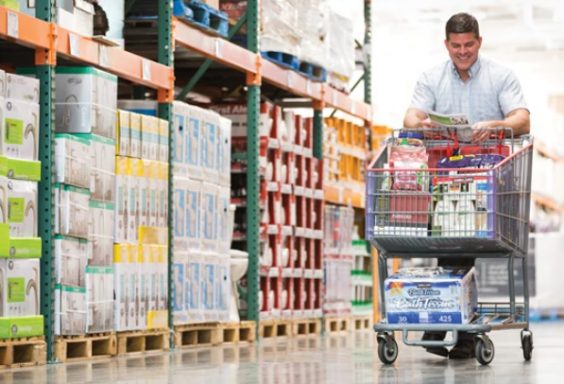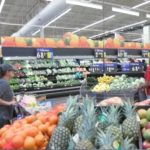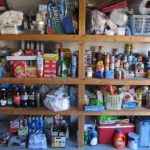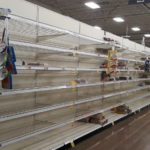
It’s not easy building a stockpile from scratch. If you didn’t already have a good supply of nonperishables and personal care products before the coronavirus pandemic came along, you probably do now. But with lockdown restrictions beginning to ease – what are you going to do with all of those beans and bottles of water you thought you were going to need to survive for the next few months or years?
It seems some of us may have focused too much on the “panic” part of “panic buying,” by spending too much and buying too much in preparation for a long stay at home. That’s according to a new survey from the coupon code site CouponFollow.
For many of us, mid-March was when the threat of the coronavirus got real. And there wasn’t time to carefully take stock of what we had and what might be useful – we just rushed to the store and grabbed whatever we thought we could possibly need. And “with emotion as the driving force behind people’s pandemic shopping habits,” CouponFollow found, many of us prioritized our fear over our budget, our actual needs and even, perhaps, our home’s storage capacity.
30% of the participants in CouponFollow’s survey said they stockpiled products because of the pandemic. 17% said they bought too much, and 10% said they ended up throwing out or wasting food they never got around to using before it went bad. Overall, half of all the people surveyed believed they spent too much money on the food and supplies they purchased.
Unsurprisingly, as we all quickly learned, toilet paper topped the list of items purchased in response to the coronavirus. 63% said they bought toilet paper, with the same percentage saying they bought eggs. Milk, pasta and paper towels rounded out the top five items purchased. When asked a slightly different question – what items they purchased in larger quantities than usual – toilet paper and pasta were once again near the top of the list, but rice and beans topped them all, with 57% saying they bought more than they usually would.
On average, people said they stocked up on two and a half weeks’ worth of supplies, which is reasonable, considering that health officials recommend a 14-day quarantine for anyone who may have been exposed to the virus. Overall, two-thirds of survey respondents said they feel confident they have everything they need in case they have to stay home for two weeks.
But what happens when your supplies start to run low? Most people are worried they may not be able to restock. Fully 90% of those surveyed said they’re concerned they might not be able to find certain essentials over the next month. While store shelves are starting to become more fully stocked again, 55% of shoppers said they still can’t find hand sanitizer in stores, 51% said they’re still having a hard time finding toilet paper, while 30% can’t find face masks or gloves.
Not all of our spending has been devoted to necessities, however. While toilet paper was the top item purchased by baby boomers and Gen Xers, it was only #4 on the list for millennials, after eggs, pasta and milk. It seems millennials were more interested in snacking, because they were the only generation who had junk food in their top ten.
CouponFollow also notes that people have spent more money on alcohol and entertainment. “With the CDC encouraging people to stay home and practice social distancing, it’s no surprise people are stocking up on things to keep them busy during these times,” it said.
And, just so you know, “shopping for these things online from home is the best option,” CouponFollow advises, helpfully noting that it offers “plenty of options for online coupons to use when you shop online for paper goods, household essentials, food and drinks, medication, toiletries, clothing, entertainment, or anything else you need while safely staying at home.”
So you may have bought too much preparing for the pandemic. But the next time you need to resupply – leave it to a coupon site to ensure you don’t spend too much.
Image source: Costco











I stuff my fat face everyday, so I need to buy hundreds of dollars of food every month.